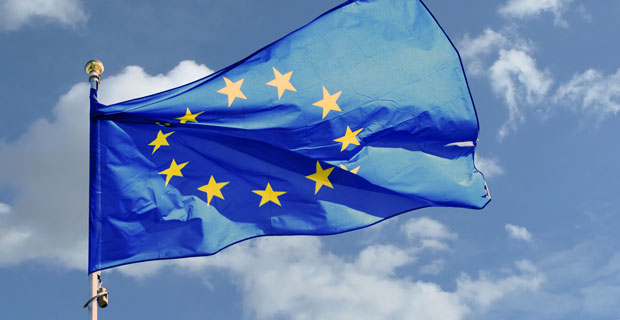The European Union has launched a probe into how Google and Facebook gather, process, use and monetize data for advertising purposes.
The European Commission, the EU’s executive arm, on Monday told CNBC that it has begun distributing questionnaires as part of a preliminary investigation into Google’s and Facebook’s data practices.
“We use data to make our services more useful and to show relevant advertising, and we give people the controls to manage, delete or transfer their data,” Google said in a statement provided to TechNewsWorld by spokesperson Jose Casteneda. “We will continue to engage with the Commission and others on this important discussion for our industry.”
Facebook did not respond to our request to comment for this story.
Amazon Also Targeted
Facebook and Google join Amazon as targets of the EU’s “digital czar,” Margrethe Vestager, the member of the European Commission in charge of competition policy.
The probe of Amazon,s announced in July, aims to assess whether Amazon’s use of sensitive data from independent retailers who sell on its marketplace breaches EU competition rules.
“European consumers are increasingly shopping online,” Vestager noted.
“E-commerce has boosted retail competition and brought more choice and better prices. We need to ensure that large online platforms don’t eliminate these benefits through anti-competitive behavior,” she pointed out.
“I have therefore decided to take a very close look at Amazon’s business practices and its dual role as marketplace and retailer, to assess its compliance with EU competition rules,” Vestager said.
Catch 22 Dilemma
Facebook, Google and Amazon are finding themselves in a “Catch 22 dilemma,” maintained Daniel Castro, vice president of the Information Technology and Innovation Foundation, a research and public policy organization in Washington, D.C.
“If they do not restrict third-party access to data, they are accused of violating consumer privacy,” he told TechNewsWorld.
“If they do restrict access, they are accused of antitrust violations,” Castro said.
The common thread in these investigations has less to do with corporate wrongdoing or anticompetitive behavior than with consumer welfare.
“I don’t know if there is an anti-American bias in the investigations, but the regulators seem to target the most successful Internet companies, and there is a strong correlation there with U.S. businesses,” Castro observed.
“The lesson American regulators should take is that the U.S. regulatory environment is conducive to innovation, and they should seek to maintain its advantage in this area, rather than copy the European approach,” he said.
Fear of Success
European regulators fear successful companies, asserted Ronald Cass, president of Cass & Associates, a Great Falls, Virginia, legal consultancy specializing in international trade.
“The regulators in Europe have a bias against any firm that becomes extremely successful, because they fear that those businesses can harm competitors, can harm consumers, or can accumulate power that threatens to undermine government,” explained Cass, a former vice chairman and commissioner of the U.S. International Trade Commission.
“While these regulators’ attention has focused in the last two decades largely on American businesses, that may be more because those have been the more successful, more entrepreneurial, more rapidly expanding businesses in emerging high-technology fields,” he told TechNewsWorld.
“Some American regulators — more at the FTC and some state governments than at DoJ — have similar biases,” Cass added.
“The fears of ways that dominant businesses can use the power that comes with being the top dog in a business sector don’t automatically justify government intervention, or even government investigation, which carries its own risks of tilting markets and discouraging innovation and competition,” he said.
“The combination of those fears with fears about misuse of data is a powerful attraction for regulatory actions,” Cass noted, “especially in Europe where privacy rules are very different from the U.S.”
Better Behavior Through Antitrust
Some of these companies have frankly admitted that they’re having trouble managing all the data they’re collecting, observed Cory Doctorow, a special advisor to the Electronic Frontier Foundation, an online rights advocacy group in San Francisco.
“If they can’t manage their data, then maybe they’ve gotten too big,” he told TechNewsWorld.
Even if antitrust actions don’t result in breaking up a company, they can make companies behave better.
“The Microsoft antitrust case is widely acknowledged, even by Bill Gates, as being a force that disciplined the company and curbed many of its worse impulses,” Doctorow said.
Bill Gates recently said that one of the reasons Microsoft didn’t get into mobile was that it was distracted by antitrust concerns, he said.
“The antitrust stuff ended eight years before the launch of Android,” Doctorow continued. “So what he’s saying is that for as long as eight years after Microsoft went through antitrust investigations, they were so traumatized that they were made timid and didn’t want to engage in the kind of monopolistic conduct that they had once been fond of.”
Probing Google’s Heart
Unlike the EU’s past probes of Google, this latest investigation aims at the heart of its business model, observed Jamie Court, president of Consumer Watchdog, a not-for-profit public interest group in Los Angeles.
“This isn’t just about Google steering people toward its own products,” he told TechNewsWorld. “The EU is looking into whether Google is living up to the GDPR and its opt-in requirements.”
The GDPR — General Data Privacy Regulation — is an EU law that gives people greater control over their data and imposes stiff fines on companies that don’t protect consumer data properly.
“This is all about how Google is using its data collection to control markets,” Court explained. “The GDPR was supposed to prevent companies from getting that type of monopoly because of its opt-in requirement.”
Reining in Facebook and Google will be a challenge for regulators, he added.
“The sheer size and power of these two companies is unprecedented. There’s a lot of danger in knowing everything about everybody when you’re in a position to swing elections or change markets,” Court said. “The EU sees that and is wondering what it can do with the power it has to curb what these companies do.”























































